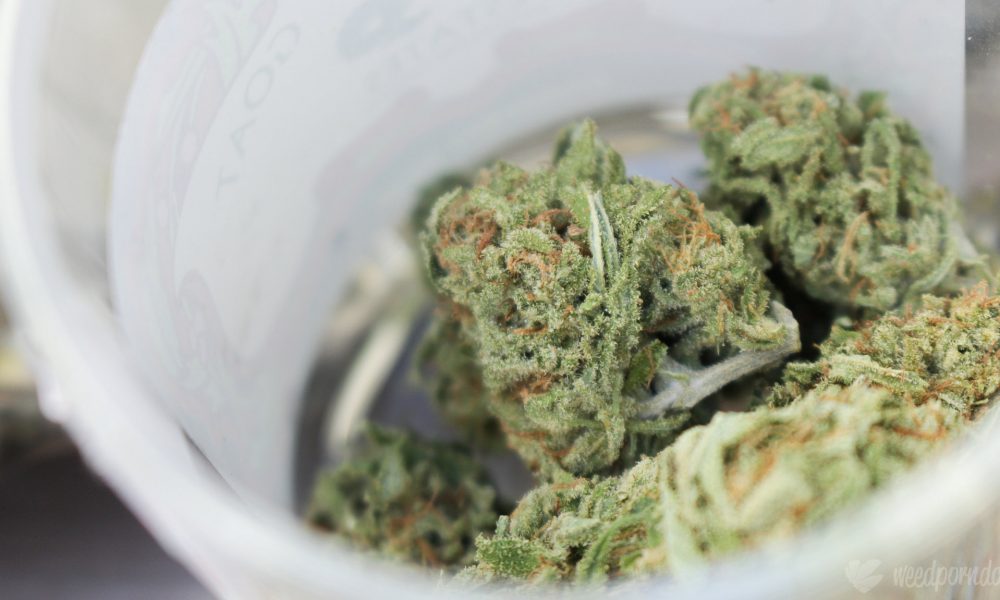The governor of New York is calling for the elimination of a THC potency tax as part of her executive budget, aiming to reduce costs for consumers in a way that could make the regulated market more competitive against illicit operators.
Gov. Kathy Hochul’s (D) budget proposal for the 2025 fiscal year would repeal the potency tax and replace it with a wholesale excise tax of 9 percent in a way that “simplifies, streamlines, and reduces the tax collection obligations and burden for cultivators, processors, and distributors.”
Cannabis would also still be subject to the existing 9 percent state retail excise tax and four percent local retail excise tax. The changes are estimated to effectively drive down the total tax rate on marijuana from an average 38 percent to 22 percent.
For vertically-integrated medical cannabis operators and microbusinesses, the new wholesale excise tax would accrue on the final retail sale to consumers and be imposed on 75 percent of the final retail sales price, the governor’s proposal says.
The briefing book for the budget says the tax changes would “promote and support the expansion of the legal adult-use cannabis market” and also result in a “net positive impact” of $6.5 million for localities.
But by reducing costs for consumers and businesses, the tax policy reform could also help the administration and regulators address one of their top priorities: driving out the illicit market.
While licensing of legal marijuana businesses has rolled out slowly amid litigation, New York has been dealing with a proliferation of hundreds of unregulated cannabis shops with prices that are generally lower because the operators don’t concern themselves with excise taxes and abiding by other regulations that increase costs.
Sen. Jeremy Cooney (D), chair of the state Senate Cannabis Subcommittee, similarly proposed eliminating the THC potency tax as part of a bill he introduced last year, but it has not yet advanced.
The New York Office of Cannabis Management (OCM), meanwhile, released its latest annual marijuana industry report recently, along with a pair of separate documents focusing on equity in the industry and an enforcement against unlicensed operators.
That report came days after OCM offered a brief snapshot of the state’s first year of legal sales, highlighting that consumers purchased more than 3.5 million cannabis products during 2023, with total sales expected to exceed $150 million.
In terms of enforcement against unlicensed marijuana activity, the state seized 11,600 pounds of illicit products worth an estimated $56 million, OCM said in the report. They also performed 369 “enforcement inspections” of illicit operations.
Hochul’s budget proposes $68.1 million in funding for OCM in the next fiscal year.
—
Marijuana Moment is tracking more than 1,000 cannabis, psychedelics and drug policy bills in state legislatures and Congress this year. Patreon supporters pledging at least $25/month get access to our interactive maps, charts and hearing calendar so they don’t miss any developments.
Learn more about our marijuana bill tracker and become a supporter on Patreon to get access.
—
As New York works to significantly expand the state’s regulated marijuana market, a bill filed in the Assembly this month would empower individual municipal governments to shut down unlicensed cannabis businesses and seize their products.
The governor’s budget proposal similarly includes legislation to allow state and local officials to “seal or padlock an unlicensed cannabis business,” it says. It also “provides additional staff resources to the Department of Taxation and Finance to assist these expanded enforcement efforts.”
New York regulators are moving to process hundreds of marijuana business license applications. Over a dozen new cannabis retailers opened in December alone following a settlement agreement lifting an injunction that had imposed a months-long licensing blockade.
“Our top priority is to grow and expand New York’s legal cannabis industry while cracking down on the illicit storefronts that continue to plague communities,” the governor said at the time.
Separately, the state’s Department of Labor last month published dozens of sample job descriptions for positions in the legal industry, which officials said are intended to help companies streamline hiring processes and allow prospective employees to assess their qualifications to work in various roles within the emerging cannabis industry.
Hochul, meanwhile, signed legislation in November that attempts to make it somewhat easier for financial institutions to work with state-licensed cannabis clients. She also signed a separate bill that’s meant to provide tax relief to New York City marijuana businesses that are currently blocked from making federal deductions under an Internal Revenue Service (IRS) code known as 280E.
While Hochul signed an earlier budget bill in 2022 that included provisions allow state-level cannabis business tax deductions—a partial remedy to the ongoing federal issue—New York City has its own tax laws that weren’t affected by that change. The new measure is meant to fill that policy gap.
Hochul also recently vetoed legislation that would have allowed hemp seeds to be included in animal feed for pets, horses and camelids such as llamas and alpacas.
In September, 66 state lawmakers—about a third of the entire state legislature—also wrote to Hochul urging her to sign a bill that would allow licensed marijuana producers to sell products to tribal retailers. The plan would offer a release valve to hundreds of cannabis farmers who are currently sitting on surpluses but have no place to sell their products. Last month, however, Hochul vetoed that bill.
Marijuana Legalization Among Top Legislative Priorities For Hawaii’s Senate Majority
Photo courtesy of WeedPornDaily.
Read the full article here









